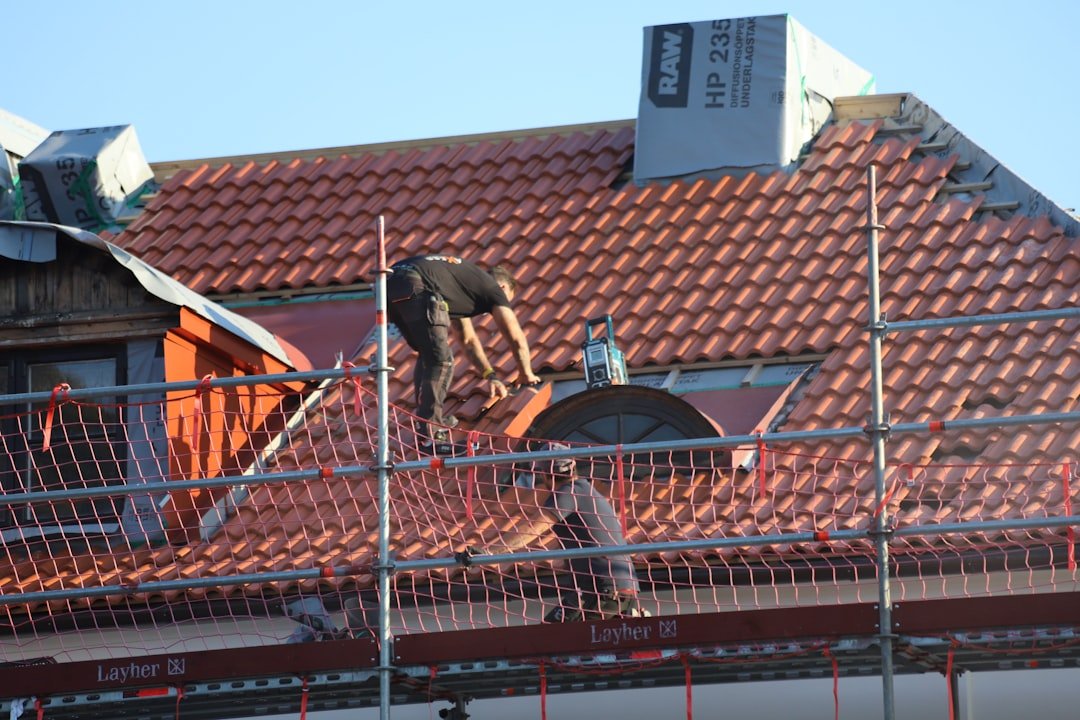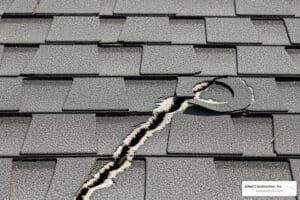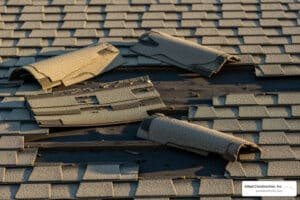
Why Finding Trustworthy Local Roofing Companies Matters
When searching for roofing companies around me, homeowners need reliable contractors who combine quality work with transparent communication. Here’s what to prioritize in your search:
Quick Answer for Finding Local Roofing Companies:
– Verify credentials: Illinois license numbers starting with 104/105, current insurance
– Check reviews: At least 40 verified reviews across Google, Yelp, and BBB
– Get 3 written quotes: Compare scope, materials, timeline, and cleanup plans
– Avoid red flags: Door-knockers, large upfront payments, cash-only requests
– Confirm local presence: Physical address, community involvement, local references
The stakes are high when choosing a roofing contractor. As one industry expert notes, “A roof is only as good as its weakest link” – and that applies to the contractor you choose as much as the materials they install. With roof replacement costs ranging from $5,890 to $12,800 for most homes, and repairs averaging $380 to $1,800, making the wrong choice can be expensive.
Storm chasers and fly-by-night operators flood neighborhoods after severe weather, pressuring homeowners into quick decisions. Meanwhile, legitimate local contractors often get overlooked in the rush to fix damage. The difference between a quality job and a nightmare experience often comes down to proper vetting and understanding what questions to ask.
I’m Gerald Michaels, founder of Adept Construction, Inc., and I’ve been helping homeowners steer the challenge of finding reliable roofing companies around me since 1997. Through nearly three decades in the industry, I’ve seen how proper contractor selection makes the difference between a roof that protects your investment and one that creates ongoing headaches.

“Roofing Companies Around Me”: Credentials That Matter
Finding roofing companies around me means separating the wheat from the chaff – and that starts with credentials. Think of it like hiring a babysitter: you wouldn’t trust your kids to someone without checking references, right? Your roof deserves the same careful vetting.
In Illinois, legitimate roofing contractors must hold current licenses through the Illinois Department of Financial and Professional Regulation (IDFPR). Residential contractors get license numbers starting with 104, while commercial contractors receive numbers beginning with 105. No license? No deal. It’s that simple.
But licensing is just the starting line. The real pros carry comprehensive insurance including general liability and workers’ compensation coverage. This isn’t just paperwork – it’s your financial protection if something goes wrong. BBB accreditation and manufacturer certifications from companies like GAF or Owens Corning show a contractor invests in ongoing training and quality standards.
Storm chasers love to flash fake credentials, so verification becomes your superpower. The good news? It’s easier than you think to spot the real professionals.
More info about Local Roofing Companies
Verify Licenses & Insurance Before You Sign
The IDFPR lookup tool is your best friend when vetting contractors. Simply type in the contractor’s name or license number, and you’ll instantly see their active status plus any disciplinary actions. Takes about 30 seconds and could save you thousands in headaches.
Don’t take anyone’s word for their credentials – even if they seem trustworthy. I’ve seen too many homeowners get burned by contractors who “forgot” to renew their license or whose insurance lapsed last month.
Insurance verification requires seeing actual certificates, not business cards claiming coverage. Ask for certificates showing both general liability (minimum $1 million) and workers’ compensation. Many established contractors carry higher limits, which demonstrates financial stability and serious commitment to protecting their clients.
Read the Digital Footprint—Reviews, Ratings & References for Roofing Companies Around Me
Online reviews tell stories that sales pitches can’t. We recommend the 40-review rule – look for contractors with at least 40 verified reviews across Google, Yelp, and Nextdoor. This threshold helps you see genuine patterns rather than a handful of cherry-picked testimonials.
Quality reviews include specific details about timeline adherence, cleanup quality, and how the contractor handled unexpected issues. The best reviews often include job-site photos that showcase workmanship and attention to detail. These visual references give you a preview of what to expect.
Be suspicious of contractors with only generic five-star reviews or recent clusters of positive feedback. Real customers write real reviews – they mention specific crew members, talk about weather delays, and sometimes note minor frustrations alongside overall satisfaction.
According to scientific research on roof longevity, proper installation significantly impacts how long your roof lasts, making contractor selection crucial for long-term performance.
Spot & Avoid Common Roofing Scams
Storm chasers represent the biggest threat to homeowners searching for roofing companies around me. These operators follow weather patterns like vultures, going door-to-door with high-pressure tactics and promises that sound too good to be true.

Here’s the truth: legitimate contractors don’t need to knock on doors. Their reputation brings customers to them. If you didn’t call them, don’t hire them. Period.
Watch for these red flags: requests for more than 20% deposit upfront, cash-only payment demands, and unrealistic warranties promising 50+ year coverage. Real professionals provide written contracts with detailed project specifications and reasonable payment schedules.
The 2025 insurance industry crackdown on storm-chaser claims has made documentation more critical than ever. Insurance companies now require extensive proof of damage and frequently pay depreciated values, making it essential to work with contractors who understand proper claim procedures and can help you steer the process professionally.
Repair or Replace? Knowing What Your Roof Really Needs
The age-old question every homeowner faces after storm damage or when leaks appear: should I repair or replace my roof? This decision impacts both your wallet today and your home’s value tomorrow. When roofing companies around me give you conflicting advice, understanding the real factors helps you make the smart choice.
Roof age tells most of the story. Most asphalt shingle roofs hit their sweet spot around 20-25 years, while metal roofs keep protecting homes for 40-80 years. Premium materials like slate? They can outlast your mortgage by decades, sometimes exceeding 100 years with proper care.
But age isn’t everything. A 15-year-old roof with multiple leaks might need replacement, while a 25-year-old roof with minor issues could get by with targeted repairs. The extent of damage matters more than the calendar.
Look for these replacement red flags: sagging deck areas that indicate structural problems, widespread granule loss that leaves shingles looking bald, and multiple leaks popping up in different areas. When your roof starts resembling a game of whack-a-mole with problems, replacement usually wins financially.
Here’s the good news about replacement costs: the return on investment averages 60-70%, with some homeowners recovering up to 107% of their investment when they sell. That makes a new roof one of the smarter home improvements you can make.
More info about roof repair Downers Grove
More info about roof replacement Naperville
When a Quick Roof Repair Beats a Full Tear-Off
Sometimes the simple fix really is the right fix. Minor issues like isolated leaks, damaged flashing, or a handful of missing shingles typically cost between $380 and $1,800 to address – far less painful than a full replacement bill.
Repair makes perfect sense when damage affects less than 25% of your roof and the overall system remains structurally sound. If your roof is less than 15 years old and only specific components need attention, you’re probably looking at a repair situation.
Think of it like car maintenance. You wouldn’t replace your entire engine for a faulty spark plug. The same logic applies to roofing – why replace an entire system when targeted fixes solve the problem?
More info about handyman roofing repair
Why a Full Replacement Pays Off After 20-25 Years
Once roofs hit the 20-25 year mark, the math starts shifting toward replacement. Spot repairs often become less cost-effective as multiple issues develop simultaneously. What starts as fixing one leak can quickly turn into an expensive cycle of patch jobs.
Full replacement brings immediate benefits that repairs simply can’t match. Modern materials and improved ventilation systems boost energy efficiency, potentially lowering your utility bills. You get comprehensive warranty coverage on both materials and labor, plus the peace of mind that comes with a complete system upgrade.
The visual impact shouldn’t be underestimated either. A new roof dramatically improves curb appeal and signals to potential buyers that major systems are current. Most roof replacements take just 1-3 days for typical homes, minimizing disruption while maximizing long-term benefits.
Scientific research on remodeling impact
Handling Insurance Claims with Local Pros
Working with local contractors experienced in insurance claims can make the difference between a smooth process and a frustrating battle. These professionals understand local weather patterns, recognize damage types common to your area, and know the specific requirements of insurers operating in your region.

The claim process follows a predictable pattern: documenting damage with detailed photos, contacting your insurance company promptly, meeting with the adjuster alongside your contractor, reviewing the scope and settling on coverage, then completing work according to approved specifications.
Experienced contractors become your advocate during the adjuster’s inspection, ensuring nothing gets overlooked and pushing for proper repair methods that some adjusters might initially deny. They speak the insurance company’s language and understand how to present damage in terms that lead to fair settlements.
The 2025 insurance landscape has become more challenging, with companies requiring extensive documentation and paying depreciated values more frequently. Having a knowledgeable local contractor who understands these changes can mean the difference between getting your roof properly restored or settling for substandard repairs.
Pick Your System: Roofing Materials & Modern Options
Choosing the right roofing material feels overwhelming when you’re searching for roofing companies around me, but understanding your options makes the decision much clearer. Your roof isn’t just about keeping rain out – it’s an investment that affects your home’s energy efficiency, curb appeal, and resale value for decades to come.
Asphalt shingles remain America’s favorite for good reason. They’re affordable, reliable, and most contractors know how to install them properly. Metal roofing has gained popularity among homeowners who want something that lasts longer and saves on energy bills. Cedar shake brings natural beauty that ages gracefully, while composite materials offer the look of premium options without the premium maintenance headaches.
Flat roofing systems serve modern home designs and commercial buildings with specialized membranes that handle standing water and extreme weather. The key is matching your material choice to your budget, climate, and long-term plans for the property.
More info about shingle roofing
More info about flat roofing
Asphalt vs. Metal vs. Premium Systems
The material you choose affects both your wallet today and your peace of mind tomorrow. Asphalt shingles cost between $450-$750 per 100 square feet and typically last 20-25 years. They’re the practical choice for most homeowners – affordable, widely available, and easy to repair when needed. The downside? They’re more vulnerable to severe weather and need replacement sooner than other options.
Metal roofing runs $800-$1,500 per 100 square feet but can last 40-80 years. That higher upfront cost pays off through energy savings, fire resistance, and the fact that you might never need another roof. Some homeowners worry about noise during rainstorms, but proper installation with adequate insulation eliminates this concern.
Premium systems like cedar shake, slate, or composite materials cost $1,000-$2,500+ per 100 square feet but offer 30-100+ years of protection. Cedar shake provides natural insulation and ages to a beautiful silver-gray patina. Composite materials give you the look of slate or wood with better durability and lighter weight. These systems require experienced contractors who understand their specific installation requirements.

Total Protection: Underlayment, Flashing & Ventilation
Your roof’s visible surface is just the beginning of a complete protection system. Underlayment acts as your second line of defense – a waterproof barrier between your roof deck and the exterior materials. Modern synthetic underlayment outperforms traditional felt paper in every way, providing better tear resistance and longer-lasting protection.
Flashing might be the most critical component most homeowners never think about. These metal strips seal the joints around chimneys, vents, and roof valleys where water naturally wants to find its way inside. Poor flashing installation causes more leaks than any other single factor, which is why experienced contractors spend extra time getting these details right.
Proper ventilation keeps your attic healthy and extends your roof’s life. Ridge vents at the peak work with soffit vents under the eaves to create natural airflow that prevents moisture buildup and temperature extremes. Ice-and-water shield protects vulnerable areas from ice dams, while drip edge channels water away from your fascia boards.
Quality roofing companies around me understand that these “invisible” components matter just as much as the shingles you can see from the street. When comparing quotes, make sure contractors specify the underlayment type, flashing materials, and ventilation plan – not just the color of your new shingles.
Getting Quotes & Scheduling the Job with Roofing Companies Around Me
Getting multiple quotes from roofing companies around me is essential for making an informed decision. The three-estimate rule helps you understand fair market pricing while revealing important differences in materials, approaches, and service quality. But here’s the thing – the cheapest quote often comes with hidden costs down the road.
When I meet with homeowners, I always emphasize that comparing quotes is like comparing apples to apples. You need written estimates that detail everything from the brand of shingles to how they’ll handle cleanup. A legitimate contractor will provide comprehensive specifications including material brands, installation methods, timeline, and warranty terms.
The typical labor-to-material split runs about 60/40, meaning labor costs usually represent 60% of your total project investment. This guideline helps you spot quotes that might be unusually high or suspiciously low. If someone’s numbers are way off this ratio, ask why – there might be a good reason, or it could be a red flag.
More info about How to Find the Right Roofing Contractor
Request, Review, Repeat—Collecting Multiple Local Bids
Collecting bids from multiple contractors does more than save money – it educates you about your project. Each contractor brings different perspectives on materials, methods, and timeline. Some might suggest upgrades you hadn’t considered, while others might identify potential issues that need addressing.
The key is making sure each contractor quotes the same scope of work. If one contractor includes gutters and another doesn’t, you’re not comparing equivalent services. Give each contractor the same information about your needs and expectations so their quotes address identical requirements.

Quality quotes include specific material specifications – not just “architectural shingles” but the actual brand and model. They detail how permits will be handled, what cleanup involves, and when the project will start and finish. Itemized pricing helps you understand where your money goes and makes it easier to adjust the scope if needed.
Watch for contractors who provide verbal estimates or handwritten notes on the back of business cards. Professional contractors use detailed proposal software or comprehensive forms that demonstrate their systematic approach to projects.
Reading the Fine Print: Warranties & Payment Schedules
Roofing warranties come in two distinct flavors – manufacturer warranties that cover materials and workmanship warranties that cover installation. Understanding both protects your investment and sets realistic expectations about what’s covered.
Manufacturer warranties typically range from 15 to 50 years depending on material quality and can cover defects in the shingles, metal panels, or other roofing components. However, these warranties often require proper installation by certified contractors and regular maintenance to remain valid.
Workmanship warranties from reputable contractors span 2 to 10 years and cover installation-related issues like leaks from improper flashing or inadequate ventilation. Some contractors offer extended warranties through manufacturer certification programs, which can provide additional peace of mind.
Payment schedules should follow industry standards with deposits of 10-20% to secure materials and scheduling. This deposit covers the contractor’s material costs and holds your spot on their schedule. The remaining balance typically comes due upon project completion and your satisfaction with the work.
Avoid contractors who demand large upfront payments – especially those asking for 50% or more before work begins. Legitimate contractors have established credit with suppliers and don’t need homeowners to finance their material purchases. Similarly, be wary of cash-only requests, as professional contractors accept checks and credit cards while providing proper documentation.
Lien waivers become important once payments are made. These documents protect you from potential claims by suppliers or subcontractors if the main contractor fails to pay them. A reputable contractor will provide lien waivers as part of their standard process, ensuring you’re protected throughout the project.
Frequently Asked Questions About Roofing Companies Around Me
How much will a new roof cost in my area?
When homeowners in the Downers Grove and Naperville area ask about roofing costs, the answer depends on several key factors. Asphalt shingle replacement typically ranges from $5,890 to $12,800 for most homes, while metal roofing can cost anywhere from $8,000 to $30,000 depending on the system selected.
The size and complexity of your roof plays the biggest role in pricing. A simple ranch-style home costs significantly less than a multi-story house with dormers, valleys, and multiple roof lines. Material selection also dramatically affects your investment – basic three-tab shingles cost much less than architectural shingles or premium metal systems.
Don’t forget about the hidden factors that can impact your final cost. Structural repairs finded during tear-off, local permit requirements, and seasonal demand all influence pricing. We always recommend budgeting 10-15% above initial estimates for unexpected issues like damaged decking or structural problems that only become visible once the old roof comes off.
How do I confirm a roofer’s license and insurance quickly?
Verifying credentials doesn’t have to be complicated when you know where to look. Illinois contractors must maintain current IDFPR licenses, and you can check these instantly through the state’s online lookup tool. Simply enter the contractor’s name or license number to confirm active status and review any disciplinary history.
Insurance verification requires seeing actual certificates, not just business cards with company logos. Request current documentation showing general liability coverage of at least $1 million and active workers’ compensation coverage. Pay attention to policy effective dates and carrier information – legitimate contractors maintain continuous coverage and provide proof without hesitation.
Never accept expired certificates or promises to “email the documentation later.” If a contractor can’t provide current insurance proof on the spot, that’s a red flag worth taking seriously. Roofing companies around me that operate professionally keep their credentials readily available and understand why homeowners need to verify them.
What questions should I ask during the first site visit?
The initial consultation reveals everything you need to know about a contractor’s professionalism and expertise. Start with credentials and experience by asking for their Illinois license number and how long they’ve been serving the local community. Request references from recent projects in your neighborhood – quality contractors take pride in their local work history.
Project specifics matter just as much as credentials. Ask what specific repairs or replacement they recommend and why. Quality contractors explain their reasoning and help you understand the difference between various material options. Make sure they clarify what’s included in their written estimate and how they handle unexpected issues or change orders that might arise during work.
Business practices separate professionals from fly-by-night operators. Confirm they pull proper permits and handle required inspections. Discuss their payment schedule and accepted methods – legitimate contractors never demand large cash payments upfront. Ask about their cleanup process and debris removal procedures, plus what warranties they provide on both materials and labor.
The way contractors answer these questions tells you everything about their professionalism. Roofing companies around me that operate with integrity welcome detailed questions and provide thorough, honest answers that help you make informed decisions about your home’s protection.
Conclusion
Finding reliable roofing companies around me doesn’t have to feel overwhelming when you know what to look for. The time you invest in proper contractor selection pays off with quality workmanship, fair pricing, and the peace of mind that comes from working with trustworthy professionals.
The key is taking a methodical approach: verify credentials through the IDFPR database, read genuine reviews from multiple platforms, compare written quotes that detail materials and scope, and trust your instincts when something feels off. Storm chasers and high-pressure tactics should send you running in the opposite direction.
The cheapest bid often costs more in the long run. Quality contractors invest in proper licensing, comprehensive insurance, ongoing training, and the materials needed to do the job right the first time. They also stick around to honor their warranties and address any concerns that might arise.
At Adept Construction, Inc., we’ve built our reputation one roof at a time since 1997. Our family-owned business thrives on local trust and transparency – values that have kept us busy through referrals and repeat customers rather than door-to-door sales tactics. We know that when you search for roofing companies around me, you’re not just looking for someone to install shingles. You’re looking for a partner who will protect your most important investment.
Whether you need emergency storm repairs or you’re planning ahead for replacement, taking time to choose the right contractor makes all the difference. Don’t let anyone rush you into a decision that affects your home’s protection for decades to come.
Your roof deserves better than a quick fix from a fly-by-night operator. Choose contractors who have earned their place in the community through consistent quality and genuine care for their customers’ homes.




